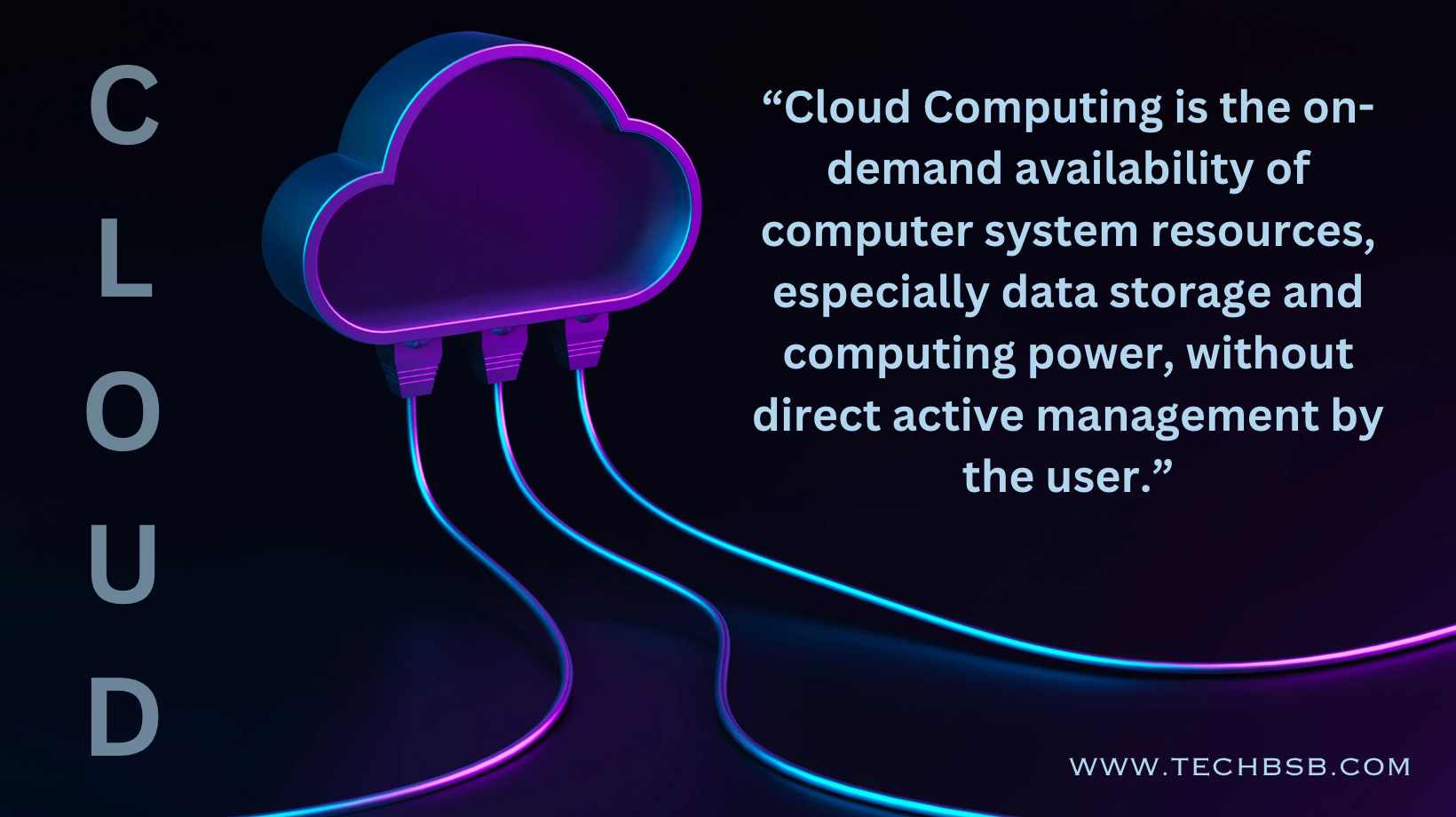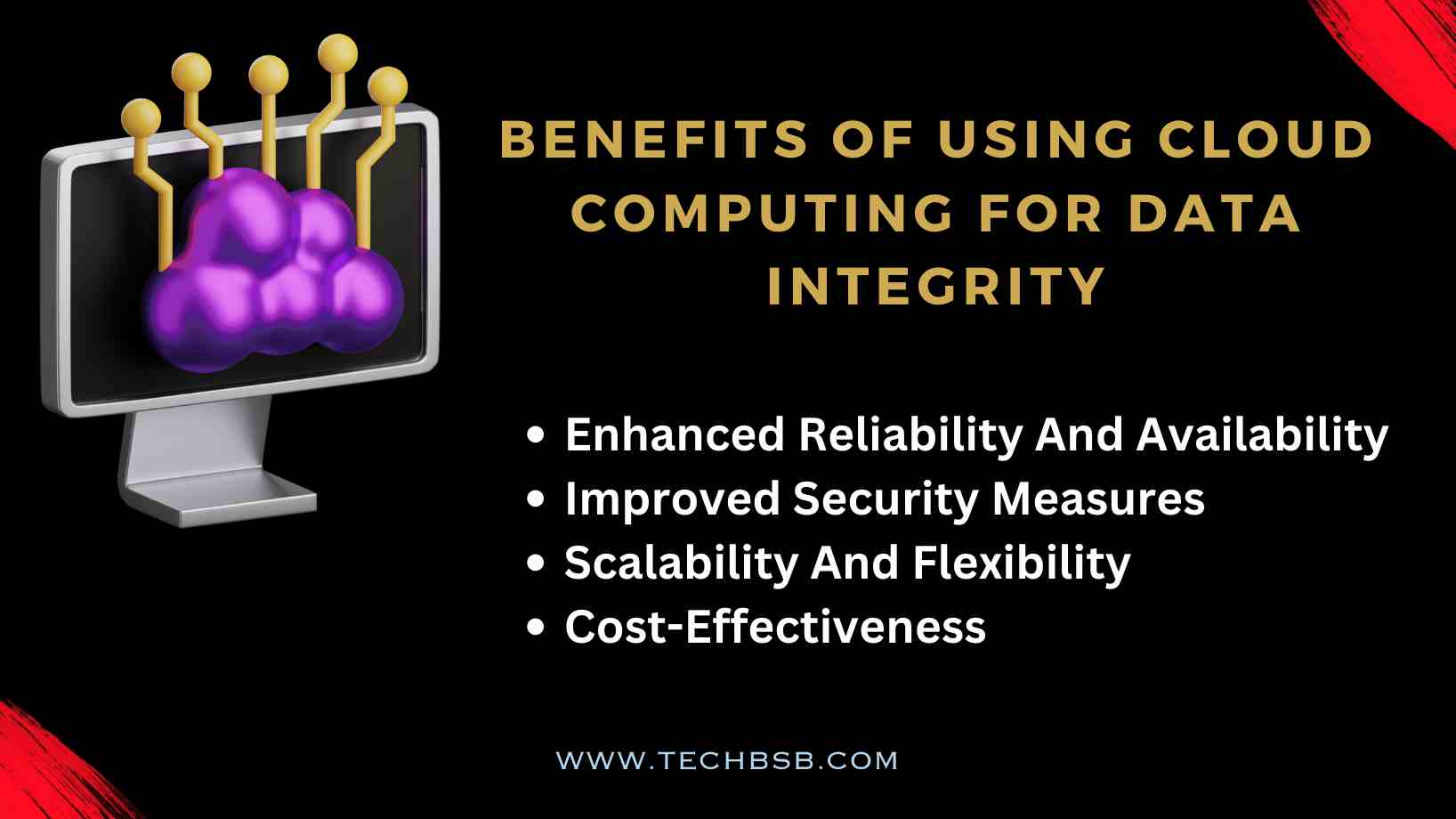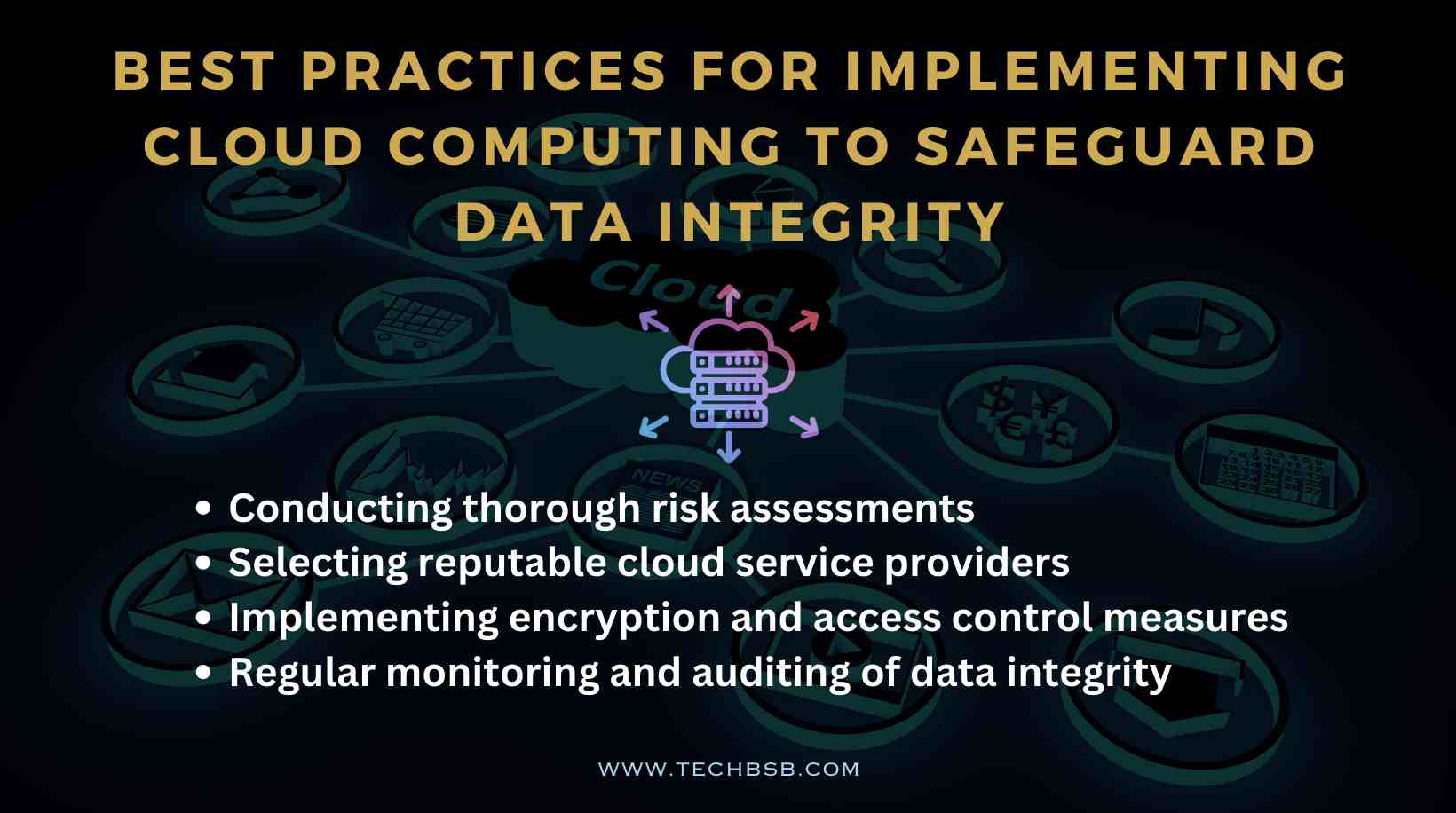Data integrity stands as a cornerstone of trust, reliability, and security in the realm of information technology.
Defined as the assurance that data remains accurate, consistent, and reliable throughout its lifecycle, data integrity forms the bedrock upon which businesses, organizations, and individuals rely to make critical decisions, conduct transactions, and safeguard sensitive information.
What is Data Integrity?
Data integrity refers to the accuracy, consistency, and reliability of data throughout its lifecycle. It ensures that data remains unchanged from its original state, maintaining its integrity and reliability for its intended purpose.
This includes preventing unauthorized access, accidental alterations, or malicious tampering that could compromise the accuracy or reliability of the data.
Maintaining data integrity is important for several reasons:
- Firstly, it fosters trust and confidence in the data, enabling stakeholders to rely on its accuracy for decision-making processes.
- In sectors such as healthcare, finance, and government, where data integrity is critical, any compromise can have severe consequences, including financial loss, legal ramifications, or even threats to public safety.
- Data integrity is essential for regulatory compliance, ensuring that organizations adhere to industry standards and legal requirements governing data protection and privacy.
Introduction to Cloud Computing
Cloud computing has emerged as a transformative technology that offers scalable, on-demand access to computing resources over the Internet.
It enables organizations to store, manage, and process vast amounts of data without the need for extensive infrastructure investments.

By utilizing a network of remote servers hosted on the internet, cloud computing providers offer a range of services, including data storage, processing, and analytics, to meet the diverse needs of businesses and users.
Cloud computing offers several advantages for maintaining data integrity. Its centralized infrastructure and robust security measures help protect data from unauthorized access, while built-in redundancy and replication mechanisms ensure data availability and resilience against hardware failures or disasters.
Additionally, cloud-based services often include advanced encryption and access control features, further enhancing data security and integrity.
What Are Data Integrity Risks?

Data integrity, in data management and security, refers to the accuracy, consistency, and reliability of data throughout its lifecycle.
Ensuring data integrity is crucial for organizations to maintain trust, comply with regulations, and make informed decisions.
However, several types of data integrity risks can compromise the integrity of data, leading to severe consequences.
#1 Accidental Data Corruption
Accidental data corruption is one of the most common data integrity risks faced by organizations. It occurs when data is unintentionally altered or damaged, often due to software bugs, hardware failures, or human error.
For instance, a power outage during a data transfer process can corrupt files, resulting in loss or distortion of critical information.
Accidental data corruption can lead to inaccurate analysis, decision-making errors, and financial losses for businesses.
#2 Malicious Tampering
Malicious tampering poses another significant threat to data integrity. This risk involves intentional alterations or manipulations of data by unauthorized individuals or cybercriminals.
Hackers may exploit vulnerabilities in systems or networks to gain access to sensitive data and modify it for malicious purposes.
For example, a cyber attacker may alter financial records to commit fraud or sabotage operations by tampering with production data.
The consequences of malicious tampering can be severe, including reputational damage, legal repercussions, and financial harm.
#3 Unauthorized Access
Unauthorized access to data presents a significant risk to data integrity, particularly in environments where access controls are inadequate or poorly managed.
Unauthorized users, whether internal employees or external entities, may gain unauthorized access to sensitive information, leading to unauthorized modifications, deletions, or disclosures of data.
Insider threats, such as disgruntled employees or negligent staff, can also compromise data integrity by intentionally or inadvertently accessing and altering data beyond their authorized privileges.
Consequences Of Compromised Data Integrity
- Compromised data integrity can lead to significant financial losses due to the costs associated with data recovery and remediation efforts.
- It can damage an organization’s reputation and erode trust among stakeholders.
- Inaccurate or unreliable data can result in erroneous decision-making.
- Operational disruptions may occur as a consequence of compromised data integrity.
- Legal liabilities can arise from the use of inaccurate data.
- In highly regulated industries like healthcare and finance, failure to maintain data integrity can lead to severe penalties, sanctions, and loss of business opportunities.
Cloud Computing As A Solution to Data Integrity Risks
Cloud computing has emerged as a pivotal solution in addressing the increasingly complex challenges surrounding data integrity. By adopting or utilizing cloud-based infrastructure, organizations can significantly reduce data integrity risks while ensuring the confidentiality, availability, and authenticity of their data.
Cloud computing refers to the delivery of computing services, including storage, databases, networking, software, and more—over the internet (the cloud) to offer faster innovation, flexible resources, and economies of scale.
Instead of owning and managing physical infrastructure, users can access computing resources on-demand from cloud service providers, paying only for what they use.
Features of Cloud Computing Enhancing Data Integrity
- Redundancy and Replication: Cloud providers employ redundant storage mechanisms and data replication across multiple geographical locations. This redundancy ensures that even if one server or data center fails, data remains accessible and intact, minimizing the risk of data loss or corruption.
- Encryption and Security Measures: Advanced encryption techniques are employed to secure data both in transit and at rest within the cloud environment. Encryption algorithms protect data from unauthorized access, ensuring its confidentiality and integrity throughout its lifecycle.
- Access Control Mechanisms: Cloud platforms offer robust access control mechanisms, allowing organizations to define granular permissions and restrict access based on roles and responsibilities. By enforcing least privilege access principles, organizations can prevent unauthorized modifications or deletions, thereby preserving data integrity.
- Data Integrity Verification Tools: Cloud providers offer tools and services for monitoring and verifying data integrity. These tools employ checksums, hash functions, and other cryptographic techniques to detect any unauthorized alterations or corruption in data, providing organizations with confidence in the integrity of their data.
Examples of Cloud Computing Services Mitigating Data Integrity Risks
- Amazon Web Services (AWS): AWS offers a comprehensive suite of services, including Amazon S3 for scalable object storage, AWS Key Management Service for secure key management, and AWS Identity and Access Management for fine-grained access control—all of which contribute to maintaining data integrity.
- Microsoft Azure: Azure provides a range of services such as Azure Blob Storage for durable and highly available cloud storage, Azure Disk Encryption for encrypting virtual machine disks, and Azure Active Directory for centralized access management, bolstering data integrity across various Azure services.
- Google Cloud Platform (GCP): GCP offers Google Cloud Storage for storing and accessing data with high durability and availability, Cloud KMS for managing cryptographic keys, and Identity and Access Management (IAM) for controlling access to cloud resources, ensuring data integrity throughout the cloud ecosystem.
Benefits of Using Cloud Computing for Data Integrity

Cloud computing has revolutionized the way businesses manage and safeguard their data, offering a plethora of benefits that directly address the challenges associated with data integrity.
Here’s a closer look at how cloud computing enhances data integrity:
Enhanced Reliability and Availability
One of the primary advantages of cloud computing for data integrity is its enhanced reliability and availability.
Cloud service providers typically operate in geographically distributed data centers, ensuring redundancy and failover mechanisms to minimize downtime.
This means that even in the event of hardware failures or natural disasters, data remains accessible and intact.
Improved Security Measures
Security is paramount when it comes to maintaining data integrity, and cloud computing offers advanced security measures to safeguard sensitive information. Cloud providers invest heavily in security technologies and employ dedicated teams of cybersecurity experts to protect against unauthorized access, data breaches, and cyber threats.
Encryption techniques are commonly used to secure data both in transit and at rest, ensuring that only authorized users can access and modify information.
Scalability and Flexibility
Cloud computing provides unparalleled scalability and flexibility, allowing businesses to easily adapt to changing data requirements without compromising integrity.
Whether experiencing rapid growth or seasonal fluctuations in demand, cloud platforms offer on-demand scalability, enabling organizations to dynamically allocate resources as needed.
This means that businesses can effortlessly scale up or down their data storage and processing capabilities without the hassle of managing physical infrastructure.
Cloud computing enables seamless integration with existing systems and applications, facilitating data integrity across diverse environments and workflows.
Cost-Effectiveness
Cost-effectiveness is another key benefit of utilizing cloud computing for data integrity. Traditional on-premises data management solutions often entail significant upfront investments in hardware, software, and maintenance.
In contrast, cloud computing operates on a pay-as-you-go model, where businesses only pay for the resources they consume. This eliminates the need for capital expenditures and reduces operational costs associated with managing and maintaining infrastructure.
Cloud platforms offer economies of scale, allowing organizations to benefit from shared resources and efficiencies, ultimately lowering the total cost of ownership.
Challenges and Limitations

While using cloud computing, the benefits are abundant, challenges and limitations also exist, posing significant considerations for businesses and organizations.
Three key areas of concern are dependency on cloud service providers, potential security vulnerabilities, and compliance and regulatory concerns.
#1 Dependency On Cloud Service Providers
One of the primary challenges in cloud computing is the heavy reliance on cloud service providers (CSPs). Businesses entrust their critical data and operations to these providers, relinquishing direct control over infrastructure and services.
This dependency raises concerns about vendor lock-in, as migrating away from a CSP can be complex and costly. Service outages or disruptions at the CSP’s end can impact the availability and performance of applications and data, leading to potential business disruptions.
To mitigate this challenge, organizations should carefully evaluate CSPs, negotiate service-level agreements (SLAs) that align with their business needs, and implement multi-cloud or hybrid-cloud strategies to diversify their reliance on multiple providers.
#2 Potential Security Vulnerabilities
Security remains a top concern in cloud computing due to the inherent risks associated with sharing resources and data over the internet. Cloud environments are susceptible to various security threats, including data breaches, malware attacks, insider threats, and unauthorized access.
The complexity of cloud infrastructures and shared responsibility models can introduce security gaps if not properly managed. While CSPs implement robust security measures, such as encryption, access controls, and intrusion detection systems, the onus is also on organizations to ensure the security of their data and applications.
This entails implementing strong authentication mechanisms, regularly patching and updating systems, conducting security audits and assessments, and fostering a culture of security awareness among employees.
#3 Compliance And Regulatory Concerns
As data privacy regulations become increasingly stringent worldwide, compliance with legal and regulatory requirements poses a significant challenge for organizations leveraging cloud services.
Industries such as healthcare, finance, and government are subject to specific data protection laws, such as the Health Insurance Portability and Accountability Act (HIPAA), the Payment Card Industry Data Security Standard (PCI DSS), and the General Data Protection Regulation (GDPR).
Ensuring compliance with these regulations while utilizing cloud services requires careful consideration of data residency, data sovereignty, data encryption, and data access controls.
Organizations must work closely with CSPs to understand their compliance capabilities, undergo third-party audits and certifications, and implement appropriate measures to protect sensitive data and maintain regulatory compliance.
Best Practices for Implementing Cloud Computing to Safeguard Data Integrity

To safeguard data integrity effectively, implementing best practices is crucial. Here are four key practices that organizations should consider:
Conducting Thorough Risk Assessments
Before migrating data to the cloud, conducting comprehensive risk assessments is essential. This involves identifying potential threats, vulnerabilities, and risks associated with storing and processing data in the cloud environment.
Organizations need to evaluate factors such as data sensitivity, regulatory compliance requirements, and the potential impact of data breaches.
Selecting Reputable Cloud Service Providers
Choosing a reputable cloud service provider is fundamental to ensuring data integrity. Organizations should thoroughly evaluate potential providers based on factors such as their security measures, compliance certifications, uptime guarantees, and track record for data protection.
Opting for established providers with a proven reputation for security can help mitigate the risk of data breaches and ensure the integrity of sensitive information stored in the cloud.
Implementing Encryption and Access Control Measures
Implementing robust encryption and access control measures is essential for protecting data integrity in the cloud. Encryption helps safeguard data both in transit and at rest, making it unreadable to unauthorized parties.
Implementing strong access control mechanisms ensures that only authorized users can access sensitive data. This involves techniques such as multi-factor authentication, role-based access control, and least privilege principles.
By encrypting data and enforcing strict access controls, organizations can prevent unauthorized access and tampering, thereby preserving data integrity.
Regular Monitoring and Auditing of Data Integrity
Continuous monitoring and auditing are critical components of maintaining data integrity in the cloud. Organizations should implement robust monitoring tools to track access patterns, detect anomalies, and identify potential security breaches promptly.
Regular audits help ensure compliance with security policies and regulatory requirements while providing insights into the effectiveness of data protection measures.
By monitoring and auditing data integrity regularly, organizations can identify and address security incidents promptly, minimizing the impact on data integrity.
A Definitive Solution for Safeguarding Data Integrity
Cloud computing offers a robust solution to mitigate data integrity risks by providing a range of features and capabilities designed to safeguard data throughout its lifecycle.
One of the key advantages of leveraging cloud computing is the redundancy and replication mechanisms inherent in cloud infrastructure.
By storing data across multiple geographically dispersed locations, cloud providers ensure that data remains available even in the event of hardware failures or disasters, thus reducing the risk of data loss and corruption.
Furthermore, cloud computing platforms employ advanced encryption techniques to protect data both at rest and in transit. Encryption algorithms such as AES (Advanced Encryption Standard) are used to encode sensitive data, rendering it unreadable to unauthorized parties.
Cloud providers implement stringent access control mechanisms to regulate who can access, modify, and delete data, thereby minimizing the risk of malicious tampering and unauthorized access.
Cloud computing offers scalability and flexibility, allowing organizations to adapt their infrastructure and resources to meet evolving data integrity requirements.
From a financial standpoint, cloud computing proves to be a cost-effective solution for safeguarding data integrity. Rather than investing in expensive hardware and infrastructure, organizations can leverage the pay-as-you-go model offered by cloud providers, paying only for the resources they consume.
This not only reduces capital expenditure but also eliminates the need for ongoing maintenance and upgrades, thereby freeing up resources to focus on core business objectives.

